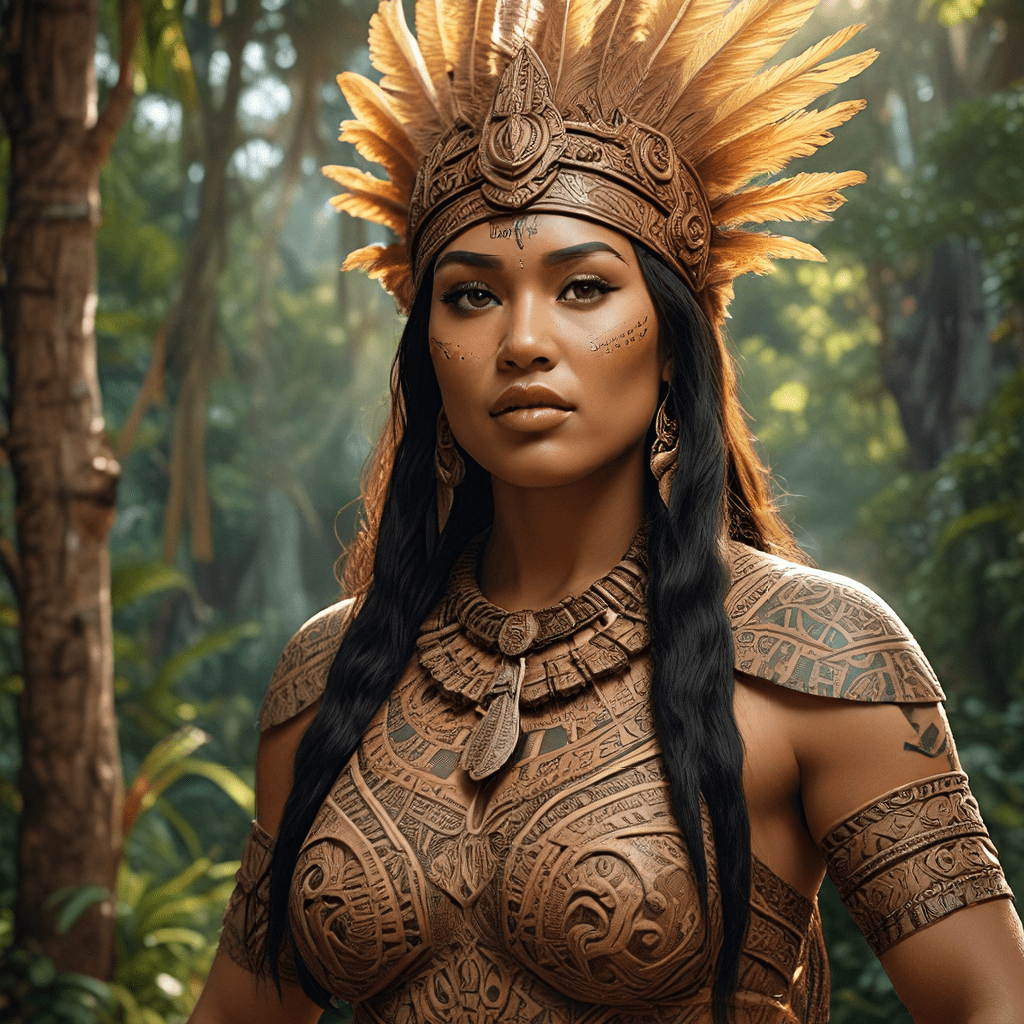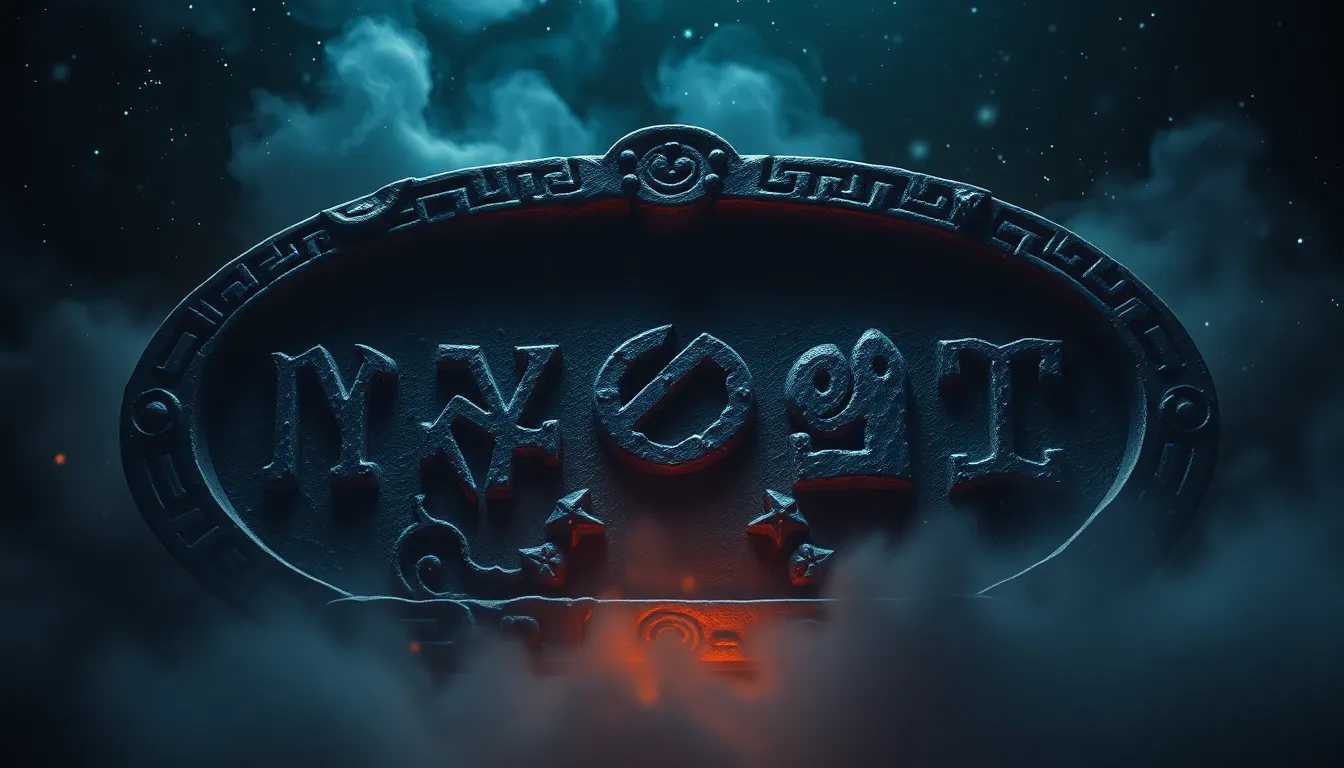Maori Mythology: A Tapestry of Ancestral Stories
The world of Maori mythology is a rich and captivating tapestry woven from ancient stories passed down through generations. These myths, legends, and tales are not just entertaining narratives; they are the very foundation of Maori culture, providing insights into their beliefs, values, and understanding of the universe. They are a treasure trove of knowledge about the origins of the world, the creation of New Zealand, the arrival of the first people, and the deeds of their ancestral heroes and heroines. Through these stories, Maori ancestors explain the natural world, explore human relationships, and define their place within the vast cosmos.
The Birth of the World and the Shaping of Aotearoa
In the beginning, there was only darkness and emptiness. Then, from the void, emerged the primordial gods, Ranginui (the sky father) and Papatuanuku (the earth mother). They embraced tightly, their bodies intertwined, forming the universe. Their children, the gods of the elements, were trapped within this embrace. Desperate for light and space, the children of Ranginui and Papatuanuku devised a plan to separate their parents. The trickster god, Tane Mahuta, the god of forests and birds, used his immense strength to pry his parents apart, creating the heavens and the earth. This act of separation brought forth light, air, and space, allowing life to flourish. As a result of this cosmic struggle, New Zealand, known as Aotearoa in the Maori language, was formed.
The landscape of Aotearoa, with its towering mountains, lush forests, and sparkling lakes, is a testament to this mythic creation story. The mountains are viewed as the bones of the gods, the forests as the hair of Tane, and the rivers as the tears of Papatuanuku. This intricate connection between the physical world and the realm of the gods underscores the profound reverence and respect that Maori have for their environment.
The Great Migration: The Journey of the Gods and the Arrival of Humanity
After the separation of Ranginui and Papatuanuku, the gods embarked on a great migration, venturing across the vast ocean to explore new lands. They sailed on the backs of mythical sea creatures, guided by the stars and the currents. This epic journey, steeped in both adventure and spirituality, symbolizes the boundless spirit of exploration that defines Maori culture.
Among the gods who embarked on this journey were the ancestors of the Maori people. Their arrival in Aotearoa marked the beginning of a new era, the dawning of humanity's presence on these shores. The stories of the great migration, passed down through generations, serve as a powerful reminder of their ancestral heritage and the enduring bond between the Maori people and their ancestral homeland.
The Role of Ancestral Heroes in Maori Culture
The stories of ancestral heroes are central to Maori culture and serve as a powerful source of inspiration, guidance, and identity. These heroes are not simply legendary figures from the past; they embody the values and aspirations of the Maori people. Their exploits and adventures serve as moral exemplars, teaching lessons about courage, wisdom, resourcefulness, and the importance of community.
These ancestral heroes often possessed supernatural abilities, reflecting the belief that humans are not separate from the spiritual realm. Their stories teach about the interconnectedness of all things, the importance of respecting the natural world, and the potential for every individual to achieve great things.
Tiki: The First Human and the Origin of Humanity
Tiki is a pivotal figure in Maori mythology, representing the first human and the origin of all humanity. His creation was a remarkable feat, signifying the divine spark that ignited life within the universe. According to tradition, Tiki was crafted by the god, Tane Mahuta, from the sacred red clay of Papatuanuku. He breathed life into him, granting him the power of creation and propagation. Tiki's creation symbolizes the deep connection between the Maori people and the earth, recognizing that they are an integral part of the natural world, not separate from it.
The story of Tiki is not just about the origin of humanity; it is also about the potential for growth and transformation. Through his actions, Tiki laid the foundation for the development of Maori society, fostering the values of unity, cooperation, and respect for the land. His legacy continues to inspire Maori people today, reminding them of their ancestral strength and the importance of nurturing their connection to their land.
Maui: The Trickster Hero and Master of the Supernatural
Maui is perhaps the most famous and beloved of all Maori heroes. He is a complex figure, often portrayed as a mischievous trickster who uses his cunning and supernatural abilities to benefit his people. However, he is also revered for his courage, his resourcefulness, and his deep love for his homeland.
Maui's most famous exploits include his capture of the sun, his fishing up of the North Island of New Zealand, and his creation of fire. These feats demonstrate his ability to challenge the established order of the world and, through his actions, improve the lives of his people. In the story of his capture of the sun, Maui, driven by the desire to bring light to his people, tricked the sun god into staying longer in the sky, lengthening the day and giving people more time to work and play.
His fishing up of the North Island is a tale of immense strength and determination, where he used a magical fishhook to pull the land from the depths of the ocean. His creation of fire is an act of innovation and ingenuity, bringing warmth, light, and the ability to cook food to his people.
Maui's actions are not without consequences. His hubris and his desire to control the elements sometimes led to negative outcomes. For instance, his attempted theft of immortality from the goddess of death resulted in his own death. This tragic end serves as a cautionary tale, reminding us that even the most powerful heroes have limitations and that the pursuit of power can lead to unforeseen consequences.
Rongomai: The Hero of Knowledge and Wisdom
Rongomai is a revered figure in Maori mythology, known for his wisdom, knowledge, and his role as the god of agriculture. He is a teacher and a mentor, guiding his people towards a better understanding of the world around them. He is credited with teaching the Maori people about cultivating crops, understanding the natural cycles, and using the resources of the land wisely.
Rongomai's stories are infused with practical wisdom and insights into the interconnectedness of nature. He is often portrayed as a humble and patient teacher, patiently imparting knowledge to his people. His teachings emphasize the importance of observing nature, understanding its cycles, and living in harmony with the environment.
His story illustrates the importance of knowledge and education in the growth and development of a civilization. He is a symbol of progress, innovation, and the pursuit of understanding.
Hinenuitepo: The Goddess of the Earth and the Creator of Life
Hinenuitepo is a significant figure in Maori mythology, revered as the goddess of the Earth and the creator of life. She is a source of sustenance and fertility, her role resonating deeply with the Maori people's connection to the land. She is believed to have created the first plants, animals, and humans, demonstrating her vital role in the creation of the world.
Her stories are closely tied to the earth, nature, and the cycle of life. She is often depicted as a nurturing and protective figure, representing the life-giving power of the earth. Her connection to the earth is not just physical; it is also spiritual, reflecting the Maori people's deep respect for the land and its resources.
Hinenuitepo's stories highlight the importance of balance and harmony in the natural world. The Maori people believe that they are an integral part of the ecosystem, not separate from it. Their actions should reflect a deep understanding of the interconnectedness of all living things.
The Significance of Ancestral Hero Stories in Maori Society
Maori ancestral hero stories are not simply entertaining narratives; they are a vital part of Maori culture, serving as a source of inspiration, guidance, and identity. These stories embody the values and beliefs of the Maori people, shaping their worldview and defining their relationship with the world.
The stories of these heroes provide moral exemplars, teaching valuable lessons about courage, wisdom, respect, and the importance of community. They also reinforce the belief in the interconnectedness of all things, encouraging the Maori people to live in harmony with the natural world.
These stories are not static; they are constantly evolving and being reinterpreted by each generation. This dynamic nature ensures that they remain relevant and meaningful to the Maori people, providing a timeless source of wisdom and inspiration.
Theories on the Origins and Development of Maori Mythology
The origins and development of Maori mythology are complex and multifaceted. While it is impossible to know definitively how these stories originated, scholars propose various theories based on linguistic, archaeological, and cultural evidence.
One theory suggests that Maori mythology evolved from the oral traditions of their Polynesian ancestors. As the Maori people migrated to New Zealand, their stories adapted and changed, incorporating elements of their new environment and experiences. This evolution is evident in the stories' focus on local geography, flora, and fauna, reflecting their connection to their new homeland.
Another theory posits that Maori mythology was influenced by interactions with other cultures. Through trade and contact with other indigenous groups in the Pacific, the Maori people may have exchanged stories and ideas, leading to a blending of different mythologies. This process of cultural exchange is evident in the similarities between Maori mythology and the myths of other Polynesian cultures.
Scholars also point to the importance of oral tradition in shaping Maori mythology. The stories were passed down through generations, with each storyteller adding their own interpretation and understanding. This process of oral transmission is believed to be crucial in shaping the narrative structure and symbolism of Maori mythology.
The development of Maori mythology is a continuous process, reflecting the changing needs and experiences of the Maori people. As new challenges and opportunities arise, their stories evolve to reflect their evolving worldview and their enduring connection to their ancestral heritage.
.
FAQ
Q: How do Maori people use their ancestral stories today?
A: Maori people use their ancestral stories today to connect with their past, understand their present, and guide their future. They are used in education, in ceremonies, and in everyday life. They provide a common ground for understanding and a source of pride and identity.
Q: Are Maori mythology stories similar to other Polynesian mythologies?
A: Yes, Maori mythology shares similarities with other Polynesian mythologies. This is because the Maori people descended from Polynesian ancestors who migrated to New Zealand. However, Maori mythology also contains unique elements that reflect their specific experiences in New Zealand.
Q: What is the relationship between Maori mythology and the natural world?
A: The relationship between Maori mythology and the natural world is very strong. The stories are filled with natural imagery, and the gods and heroes are often associated with specific elements of the natural world. The Maori people believe that they are an integral part of the natural world, not separate from it.
Q: How do Maori mythology stories impact the lives of Maori people today?
A: Maori mythology stories play a significant role in the lives of Maori people today. They provide a framework for understanding the world, a source of inspiration and guidance, and a way to connect with their ancestral past. They are a vital part of Maori culture and identity.



